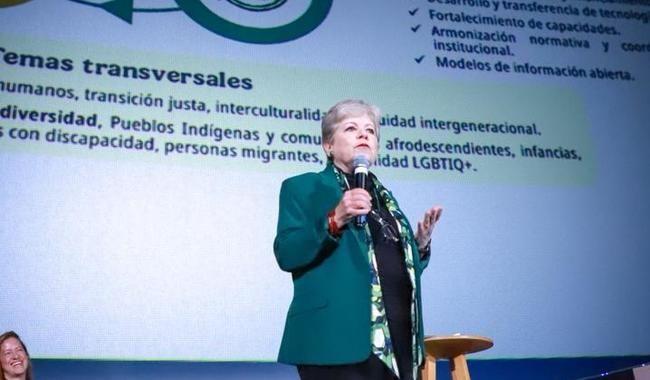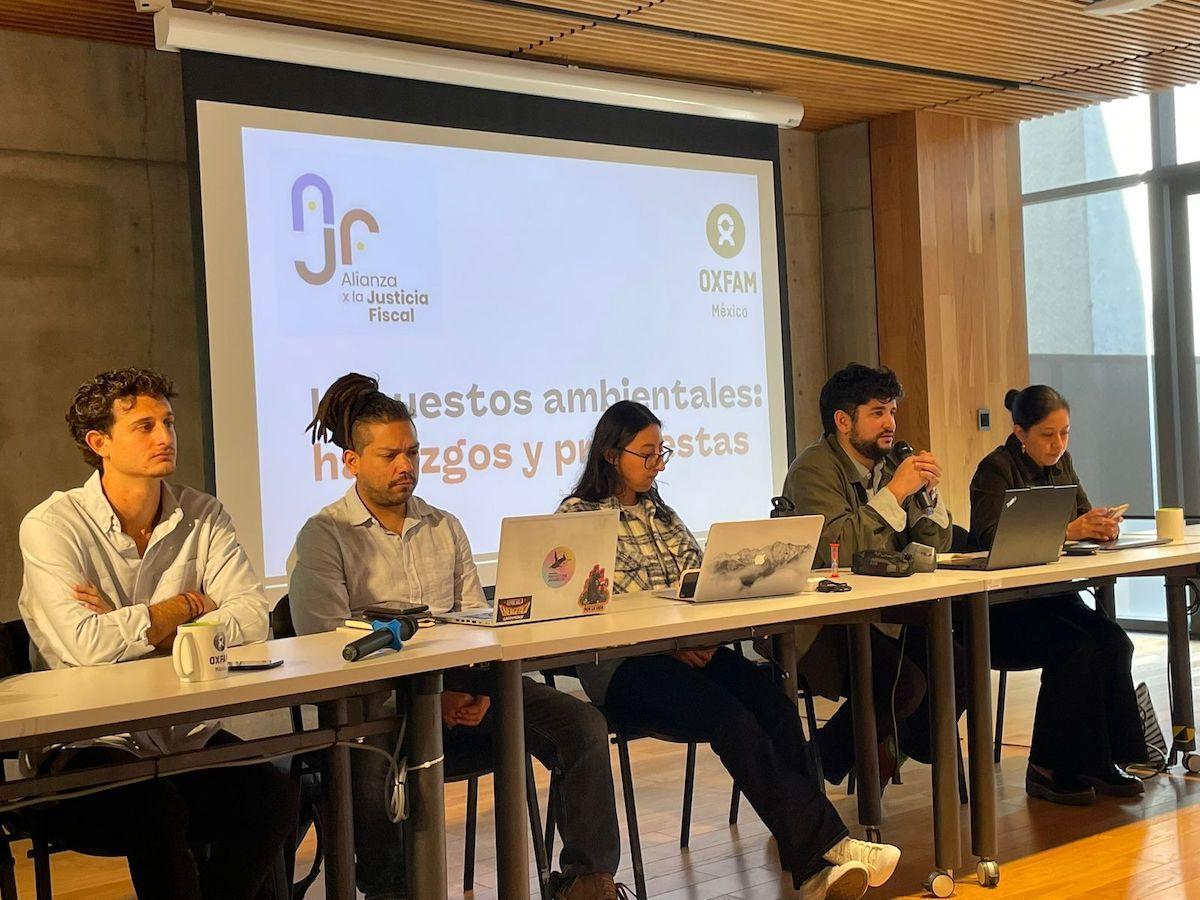As the United Nations Conference on Climate Change (COP30) approaches to be held in Brazil in November, civil organizations from Mexico warn of the need for the budget and energy policy to support the expected announcement of Mexico's climate goals.
Jorge Martínez, coordinator of the Climate Justice Program of the organization Oxfam Mexico, highlighted the efforts of environmental authorities to have more robust Nationally Determined Contributions (NDC), however, the country's budget under debate does not seem to support them.
“All of this is very good, but in Mexico, unfortunately, having something in law, in a planning instrument, does not necessarily mean that it is going to be done, that it will be carried out. Unfortunately, this is the reality of the country in which we live. What is it that is needed? Budget... the public budget can make an important difference in climate action in the country,” said Martínez, interviewed as part of the event “Climate Justice, Policy and Mitigation: How and with what resources?”
Only 0.47% of the country's total budget goes to the attention of climate change, according to the Sustainable Finance Index.
So far, 64 countries out of 195 have submitted their NDCs. Although Mexico is still among the pending countries, the authority has given messages of certainty to count on them at the conclave to be held in Bethlehem, Brazil.
Sandra Guzmán, director of the Latin American and Caribbean Climate Finance Group (GFLAC), agrees that the Secretariat of Environment and Natural Resources (Semarnat) has made an important effort to open the conversation about the creation of NDC 3.0. However, these goals also cover areas beyond this dependence, such as energy.
“Today, the energy sector has assured, and we can see from the Pemex Plan, that a fundamental part of what the energy sector will do will be to continue investing in fossil fuels. For example, expanding the topic of gas, which is a very important topic for the process, even for Plan Mexico, but which has a tremendous impact on the environment. Gas has lower emissions than oil and coal, but it is a fossil fuel,” said Guzmán, interviewed as part of the press conference “Mexico's climate contributions and the 2026 Economic Package: challenges and opportunities to align the budget and the climate.”
In this way, while the NDCs intend to be jointly responsible for limiting the increase in global temperature to 1.5°C, the government of President Claudia Sheinbaum is experiencing a series of pressures from the industrial sector that does not want commitments, but which at the same time requires incentives to reduce emissions, civil organizations warn.
“But what we do have to demand is that it is not an option for Mexico to make an NDC. The law requires them to have some NDC's and what the convention is demanding of us is that they have to be ambitious. Just any number is not enough if there is no implementation plan to do so. So, Mexico must and if we don't, we're going to take Mexico to the Court because it will be in profound violation of the law on climate change and of what the International Court of Justice says that we as citizens have to make climate action enforceable,” Guzmán explained.
Proposals for integration

Secretary Alicia Bárcena is leading the federal government's efforts to shape the NDCs. Photo: Government.
In the run-up to COP 30, there are initiatives that have been shared with Semarnat and that are still waiting to be integrated into the version of the NDCs that are about to be updated.
This is the case of the proposal to decarbonize the country by stopping the operation of coal plants and the mining of this rock within five years, by the organization AIDA.
“Although there are few power plants (three), coal itself is one of the most polluting. So, with a little bit you can achieve a lot. So, that's why we see it as a lot of cost-benefit... Strictly in terms of greenhouse gases, you can save a lot, with this progressive shutdown,” said Gisselle García, from the AIDA climate program, interviewed as part of the conference: “Climate Justice, Policy and Mitigation: How and with what resources?”
Until now, the authorities have confirmed that they have received the NGO proposal, but the updating of the NDCs has been handled with secrecy, despite the participation of civil organizations in a series of workshops opened by environmental authorities.
“What follows from the country's agreement? The Paris agreement doesn't say exactly, it's not that meticulous in saying how countries should do this process, but it's understood that it has to be a participatory process,” García explained.
Geopolitical context
A proactive Brazil, a China with unambitious NDCs and an expectant European Union, mark COP30 and the context in which Mexico arrives.
“We have that dichotomy, we have that commitment to oil and that commitment to climate change... Mexico should be Brazil's main ally in saying: 'We are going to have more ambition, we are going to do these things, these are the proposals, these are the projects, this is where we can'. We're not there yet,” Martinez said.
On the other hand, Mexico has been a country that has opted in its discourse to strengthen the legitimacy and success of domestic climate policies, making them fairer and more effective. Especially for indigenous peoples.
“I think that Mexican diplomacy should be focused on supporting that these issues are actually substantive parts of international politics and, of course, of the NDCs, that is, Mexico's NDCs need to be comprehensive because we have a very large indigenous population and if it's not countries like Mexico that carry them, the others are not going to promote it,” Guzmán said.
According to a 2020 census by the National Institute of Statistics and Geography (Inegi), 6% of the country's population speaks indigenous languages.
“Let's remember that the region operates in a very divided way, but the indigenous theme can be something that embraces us, that brings us as a region and I think that should be a flag in the context of adaptation,” added the expert.




Comentarios (0)